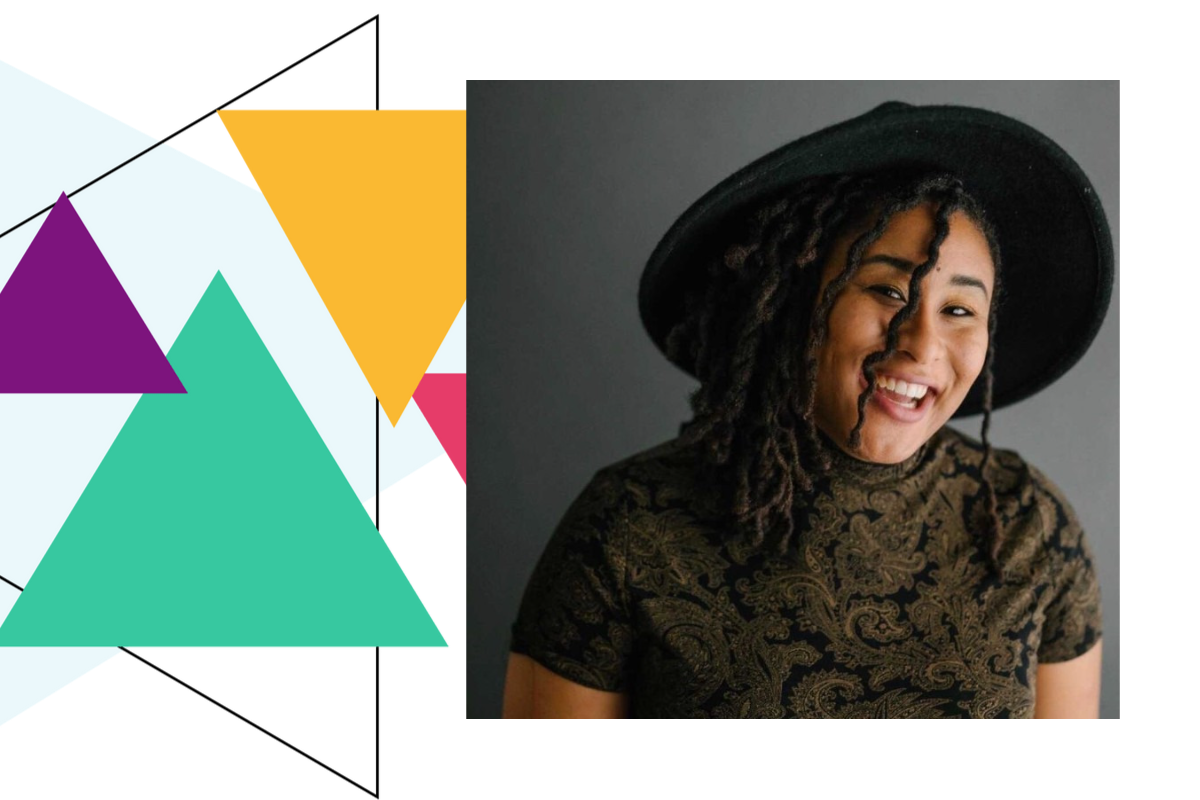To Mariah Barber (they/them/she/her), a vital part of the diversity, equity, and inclusion (DEI) conversation often goes overlooked – accessibility.
Creating more inclusive spaces available to all people, regardless of their condition or ability, has driven Mariah to their entire professional life. And recognizing that those conditions aren’t always apparent, Mariah co-founded Invisible Strengths LLC early last year to help intersectional job-seekers navigate the search regardless of their disability.
Invisible Strengths is a full-spectrum support network for candidates and employers alike. Sparked from their own experiences as a disabled, BIPOC, LGBTQ+ jobseeker, Mariah’s dream of creating this infrastructure to address disparities in the disability space is finally taking shape.
Mariah, could you walk us through your journey with your disability?
I have worked in Public Health for the last ten years in the global health and international development fields. I spent time in the Caribbean and Latin America, even volunteering with the Peace Corps in Nicaragua for a few years.
After volunteering, I had a health examination and I realized I had developed a rare vision disorder called Keratoconus, which causes blurry vision as the corneas cone and sensitivity to light. Back in the states, I started looking for resources for my condition. I had two emergency eye surgeries and realized how cumbersome the process of getting support was. Going between doctors and HR departments/management was both arduous and depleting.
In addition, I realized there was a genuine lack of intersectionality in these spaces. There were some support services for disabled folks, some for those with invisible disabilities, some for LGBTQ+ folks, some for BIPOC people, etc. but nothing that supported all of these groups.
I wanted the next person in my shoes to feel less isolated. My own lived experience supported diversified recruitment, and I knew I could help people get equitable jobs without being stigmatized. That’s when I decided to venture into my startup.
Why did you decide to get into entrepreneurship?
I remember reading “It’s About Damn Time” by Arlan Hamilton, and it resonated with me hearing from a Black Lesbian on her journey to entrepreneurship. It was the first time I heard the term “venture capital”; for once, I could see myself with these other Silicon Valley business leaders. I’ve always worked in the small business space, but when I discovered that less than 1% of venture capital dollars go to Black women, I decided to put myself in that statistic.
What does Invisible Strengths do differently?
When you’re part of a marginalized group and have a disability, you’re more likely to be underemployed or unemployed. We’re focused on those with invisible disabilities because they’re often overlooked. We don’t turn people away, but we’re focused on those individuals because we know they need a loud voice.
Particularly with our mobile app, we connect inclusive employers and intersectional members. We show a list of the top 82 accommodations being looked for in an employer and can match employers with their top five candidates. Through our customer discovery, people have access to our diverse candidate pool which can help an organization build on their talent.
Invisible Strengths establishes a unique pipeline so that we can streamline the DEAI hiring process.
How’d you first get involved with StartOut?
Throughout my life, I’ve searched for groups that I identified with. Places for queer folks, BIPOC folks, disabled ones – and along the way I discovered StartOut.
I started going to StartOut trainings to educate myself on VC, network with other queer founders, and just generally put myself out in that world. I’ve met people on the executive team and could ask them directly, ‘what resources do you provide?’
StartOut was so pivotal for Invisible Strengths when they started recommending and referring us to different accelerator and incubator programs like those from DivInc, Halcyon, and Techstars. That, and the opportunity to participate in the D.C. programming board and meet other LGBTQ+ founders have made the whole experience so life-changing. I’m so grateful to StartOut for their continued support.
Where do you see the future of DEAI heading?
I think there’s a lot that still needs to be done in the world of DEAI. There are a lot of disconnections within organizations where they’ll bring in a trainer to talk about LGBTQ+ issues, Black issues, etc. but never address the intersectionality of what it means to be Black and queer or Trans and disabled. We need to improve here greatly.
DEAI holds people accountable and it might have to get a little uncomfortable before we start to see real, long-lasting change. We need to welcome diversity of thought in everything we do and it starts with putting peoples’ lived experiences first.
As we age, we all enter a minority group. We may not be born Black, trans, Latinx, etc. but we will all enter the underrepresented elderly group. The sooner we realize we have more in common than we realize, the clearer the path forward becomes.
You can connect with Mariah on LinkedIn for the latest updates on Invisible Strengths and follow our blog on Medium for more monthly founder stories.
